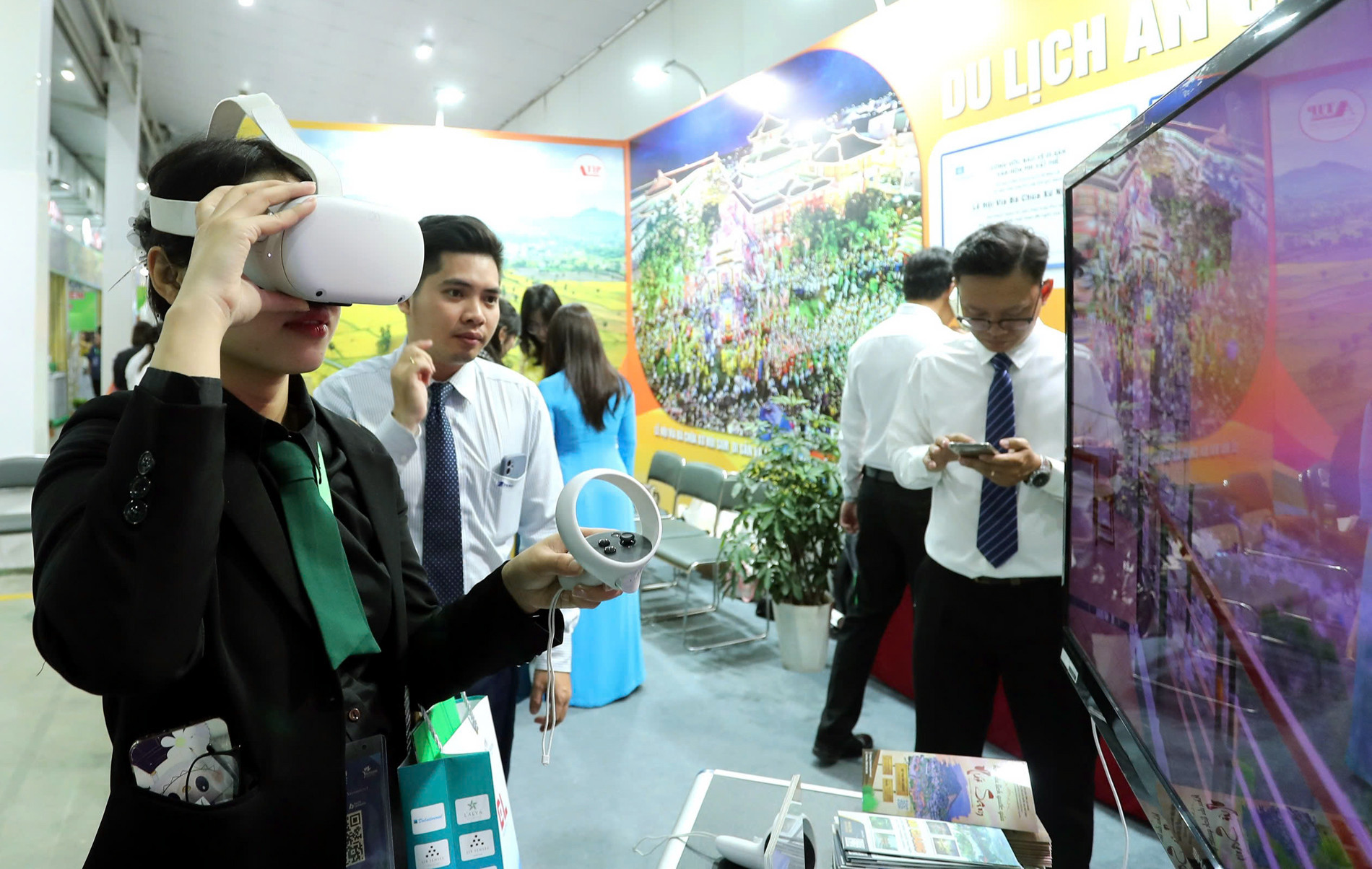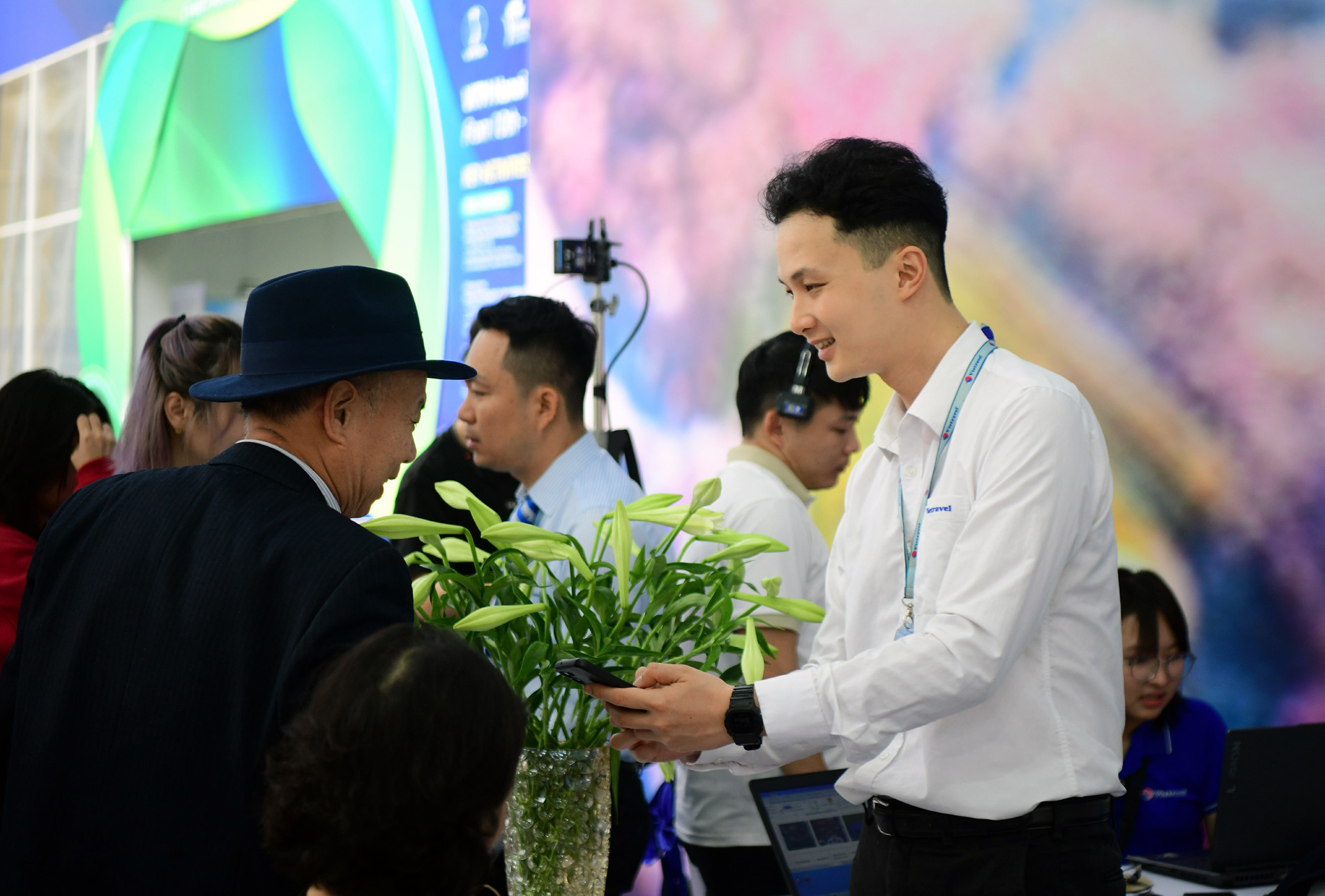Artificial intelligence (AI) applications are being increasingly adopted by tourism companies, particularly in customer consultation, needs assessment, and care. However, this is only the beginning, prompting the question: is AI threatening jobs in the tourism sector?
Reducing response time by 40%

Instead of having staff work late into the night to answer questions and provide consultation, AI now allows travel companies to serve customers 24/7. With a 40% reduction in response time, sales teams can provide better customer service, resulting in higher conversion rates for tours and flight bookings.
Bui Thanh Tu, Marketing Director of Best Price, highlighted the clear benefits of AI. Speaking with VietNamNet, he shared that the “AI Assistant for Tourism” app helps the company understand each customer's preferences, enabling them to personalize trips to meet individual demands.
Moreover, the AI assistant can respond to customer inquiries almost instantly, instead of the hours or even a full day it may take a human tour designer to generate itineraries and quotations.
"Especially with the current trend toward online booking and high personalization, and since companies can't always scale up their workforce during peak seasons, this app proves extremely effective," Tu added.
Nguyen Cong Hoan, General Director of Flamingo Redtours, noted that AI significantly reduces the time required to design and present travel products.
He explained that what used to take two to three hours - or even longer if the customer was unfamiliar with the product - can now be done in just 5 to 7 minutes, or even as little as 2 minutes.
Nguyen Huu Cuong, General Director of Trang An Travel, said AI enhances interaction with customers, making them feel more involved in the tour planning process. Customers can choose their own tours with the help of a virtual assistant. His company is integrating with leading AI apps like ChatGPT to assess customer demand and tailor outreach to specific segments.
"By analyzing big data, we can identify customer needs and create differentiated, competitive offerings," Cuong said.
However, AI adoption across industries, particularly in tourism, remains slow. Statistics show that nearly 50% of small and medium-sized travel businesses have not begun digital transformation.
Vu The Binh, Chairman of the Vietnam Tourism Association, observed that most tourism businesses only apply AI in limited functions such as marketing and customer service. Other challenges include a shortage of AI experts and tech-savvy personnel. Additionally, the initial investment in AI solutions can be high, which presents a significant barrier for smaller businesses.
Do Hong Xoan, Chairwoman of the Vietnam Hotel Association, noted that many hotels rated three stars or lower struggle to implement digital transformation due to a lack of tech-literate staff, software, and smart devices. The human resource gap has become a major obstacle to digitization.
Will AI take over tourism jobs?

A travel agency employee provides product consultation to tourists. Photo: Ha Anh
To apply AI more effectively in the tourism industry, experts suggest companies invest in building robust tech ecosystems, including infrastructure and skilled personnel.
Businesses must invest more in training programs and ensure their staff have access to new technologies and knowledge.
Regarding AI investment costs, at a recent panel on the future of Vietnam's tourism industry and AI, Vu Quyet, Chairman of LocalAI Technology JSC, argued that AI doesn't have to be expensive if used wisely. Tasks like marketing, content writing, and video production can all be handled by AI tools.
According to Quyet, some tools cost only $200 per month yet can replace an entire marketing department. AI agents (automated systems designed to perform specific tasks independently) can be developed or customized using existing solutions. Companies can outsource the development of chatbots tailored to their specific needs for just a few thousand dollars.
"These tools significantly reduce time, labor, and costs related to customer service, support, and sales," he said.
But the big question remains: will AI reduce tourism sector jobs?
Dinh Thu Huong, Deputy General Director of Net Zero Vietnam JSC and a veteran with over 20 years in the banking industry, admitted that the banking sector has laid off staff due to digital transformation. However, depending on the department, hiring continues, so overall employment levels have remained steady.
In the tourism industry, Huong predicted the rise of AI agents and AI operations. These tools could gradually replace traditional sales agents and reduce the need for operations staff to just one or two people. She emphasized that companies should proactively restructure their workforce in anticipation of AI's growing influence.
Ngoc Ha